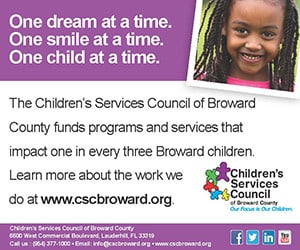Florida Department Of Health Takes Action To Prevent Sexual Assault

TALLAHASSEE—April is Sexual Assault Awareness Month (SAAM) and the Florida Department of Health is making strides to protect the safety of all Floridians. The department’s Sexual Violence Prevention Program contracts with organizations throughout the state to provide sexual violence prevention education, special projects and social norms campaigns.
“The Florida Department of Health is dedicated to ensuring the well-being of all Floridians,” said State Surgeon General and Secretary of Health Dr. John Armstrong. “The department works with state, local and community partners to raise awareness and prevent sexual assault in Florida.”
The 2015 SAAM theme is, “It’s Time to Act: Safer Campuses for Brighter Futures.” The National Sexual Violence Resource Center coordinates this campaign and provides resources for preventing and responding to sexual violence throughout the country. Three of the department’s contracted providers are universities, each with a different program for addressing sexual assault on their respective campuses. These programs include:
- The University of Central Florida’s “Not Anymore Program”;
- Florida State University’s “Measure Up Program”; and
- The University of South Florida’s “Bar Bystander Project.”
Sexual violence includes sexual assault, rape, harassment, stalking, incest, coercion and trafficking. If you or someone you know has been sexually assaulted, the Florida Council Against Sexual Violence (FCASV) maintains a toll free, 24-hour hotline number at 1-888-956-RAPE. The hotline connects callers to the nearest rape crisis center and callers may remain anonymous. Information is also available on the FCASV website at www.fcasv.org.
The department encourages all residents to inform themselves about sexual violence. Residents can help make a difference by taking one of many steps, including:
- Visiting websites like the Rape Abuse and Incest National Network at http://rainn.org.
- Speaking up if they hear people saying things or acting in a disrespectful way. Visit http://stopbullying.gov or the National Sexual Violence Resource Center at http://www.nsvrc.org/bystander-intervention-campaigns-and-programs.
- Finding out who the advocates are who are working to prevent sexual violence in their city or neighborhood. Residents can join them by volunteering and supporting events. For a listing of Florida’s rape crisis centers, visit http://fcasv.org.
- Ask people in their life to take action. Residents can talk to their family about ways to safely intervene and help create a healthy environment for everyone.
ADVERTISEMENT



